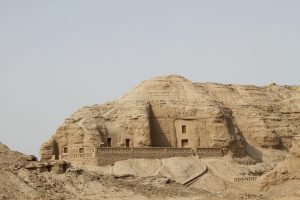06.03 Albert Welter (University of Arizona, US) “A New Look at Old Traditions: Reimagining East Asian Buddhism through Hangzhou”
The history of Buddhism incorporates East Asia in meaningful ways, but still tends toward Indo-centrism in its overall conception. This makes sense when one considers India as the birthplace and homeland of Buddhism and the development of key teachings and traditions. Yet, the history of Buddhism covers 2500 years, and for the last 1000 years or more, India has ceased to be a significant source of Buddhist inspiration, and figures primarily in passive memory rather than as active agent. This is especially true in the case of China, which actively reimagined Buddhism in unique and indigenous ways to form an intrinsically authentic form of East Asian Buddhism.
Hangzhou, a former capital of China during the Song dynasty (960-1278), was the focal point for these developments. From the Hangzhou region, new forms of Buddhism spread throughout East Asia, especially to Japan and Korea. As a result, when we speak about East Asian Buddhism today, we are largely speaking about forms of Buddhism that were initiated in Hangzhou, and adopted and adapted in other regions and time periods. The most prominent among these is Chan Buddhism, known in Japan as Zen and Korea as Sŏn, the practice of which from the 10th century on is indebted to Buddhist developments in Hangzhou.
The presentation reviews how the history of Buddhist Studies has neglected and marginalized East Asian Buddhism and the role of the greater Hangzhou region. It suggests how the Hangzhou region became a Buddhist center, a new Buddhist homeland, and a hub for interactions with Korea and Japan that were instrumental in the development of unique forms of East Asian Buddhism.
13.03 Shaku Jinsen (KULeuven – Chingokuji, Japan) “Pilgrimage into Freedom: a Buddhist Phenomenology of Mind”
SPEAKER:
After graduating from the Japanese Studies department at the KU Leuven University, Belgium, Shaku Jinsen received his Master’s degree in Buddhist Philosophy at the University of Koyasan, Japan. He became a Buddhist monk of the Shingon-school of Japanese Buddhism. He currently resides both in Belgium and Japan, leading the Buddhist centre Yo e an in Belgium and assisting the activities of the Shingon-temple Chingokuji in Kagoshima, Japan.
ABSTRACT:
An introduction to the philosophy of Kūkai (774-835) and the Shingon-school of Japanese Buddhism.
In 9thcentury Japan the Buddhist monk and philosopher Kūkai devised a grand scheme incorporating all forms of knowledge known to him. Buddhist and non-Buddhist, religious and non-religious; every lifestance that had been transmitted to Japan at that point, was put together in an ascending order of spiritual depth and philosophical scope. On the basis of two of the major works of Kūkai; the’ Precious Key to the Secret Treasury’ and the ‘Ten Layers of Mind’, we will introduce the key points of this grand summary of human experience and Buddhist philosophy. We will also touch on the significance of Kūkai’s philosophy as a model for cultural/spiritual integration in Japanese culture in general, and try to ponder the possibilities and limits of this model for our (post-) modern times.
20.03 Beatrix Mecsi (Eötvös Loránd University, Budapest, Hungary) “How Did a Religious Founder Become a Doll? Bodhidharma Representations in East Asia”
SPEAKER:
Beatrix Mecsi is an art historian with a specialization of East Asian Art. She has studied European Art History, Japanese and Korean Studies in Eötvös Loránd University (ELTE) in Budapest. After finishing her MA degrees (Art History 1998 and Japanese Studies 1999), she went to England and obtained her PhD degree in University of London, School of Oriental and African Studies (SOAS) in the Department of Art and Archaeology. Her research interest includes religious iconography in East Asia, text-image relationships, art theory and contemporary art. She won the Pro Scientia golden medal bestowed by the Hungarian Academy of Sciences for outstanding research in 1999, and other prizes with her essays in art history. She taught at University of London (SOAS) and also taught MA classes at the Sotheby’s Institute in London, and taught the course “Comparative East Asian Art” at Yonsei University in Seoul, Korea between 2006 and 2008. She has completed her habilitation in 2009 in the field of East Asian art history. Currently she is the head of the Korean Studies Department, teaches at the Institute of East Asian Studies, at Eötvös Loránd University, Budapest.
ABSTRACT:
According to tradition the founder of Chan or meditational Buddhism, Bodhidharma, originated from India, yet his legend and first representations are more typically associated with China and his legendary figure is frequently seen in the visual art and popular culture of the East Asian countries. In my lecture I focus on the visual representations of Bodhidharma as they became popular in Korea and Japan, attempting to show the basic differences in the popularization of the visual images of Bodhidharma in these countries, focusing mainly on the visual appearance and iconography. The power of the image is seen in the commercialization of representations of Bodhidharma, particularly in Japan, where his image became to be formed in a shape of the popular Daruma doll.
27.03 Hans Martin Krämer (Heidelberg University, Germany) “Even Three-Year-Old Children Know that the Source of Enlightenment is not Religion but Science”: Modern Japanese Buddhism between ‘Religion’ and ‘Science,’ 1860s–1910s”
SPEAKER
Hans Martin Krämer is professor Japanese Studies at Heidelberg University. His main expertise is in the modern history of Japan, with a specific focus on education, religion, and human–nature relations. His most recent publications include the article “Pan-Asianism’s Religious Undercurrents: The Reception of Islam and Translation of the Qur’ān in Twentieth-Century Japan” in the Journal of Asian Studies (2014), the monograph Shimaji Mokurai and the Reconception of Religion and the Secular in Modern Japan (University of Hawai‘i Press, 2015), and the co-edited volume Religious Dynamics under the Impact of Imperialism and Colonialism: A Sourcebook (Brill, 2016).
ABSTRACT
The acceptance of the truth claims of modern science as being fundamentally of a different order than those of ‘religion’ was a central feature of a globally shared concept of religion emerging in the nineteenth century. Conversely, refusing to make the distinction and continuing to claim religious authority over matters of science became the hallmark of ‘esoteric’ movements or ideas. In Japan, religions were quick to identify the challenges posed by the materialistic natural sciences; in response, Japanese Buddhists emphasized the compatibility of Buddhist doctrine with the causal rationality seen in the natural sciences. Concretely, this could mean either viewing certain Buddhist teachings as identical with science, or judging that Buddhism and science belonged to different realms but were in no conflict with each other. In this paper, I will examine the Japanese Buddhist debate before ca. 1900, identifying the strategies Japanese Buddhists employed to position themselves vis-à-vis science. I will argue that the processes examined here contributed crucially to creating the division between proper religions and esoteric movements present in Japan until today.
03.04 Marjan Beijering (Geschiedenislab, The Netherlands) “Fame Gets to your Head: Janwillem Van de Wetering in Amsterdam, 1966-1975”
SPEAKER
Marjan Beijering studied social history in Rotterdam and is an independent historian (www.geschiedenislab.nl). She is working on the biography of Janwillem van de Wetering.
ABSTRACT
Among Buddhists Janwillem van de Wetering is probably still famous for his book The Empty Mirror, his account of his year and a half stay in a Zen monastery in Japan. The book was published in 1973 in the United States and became an immediate success. Although the book was published in 1971 in the Netherlands, he only became well known here after his success overseas. With the detective novels featuring the duo Grijpstra en de Gier Van de Wetering became a celebrated and bestselling author whose novels were read not only in The Netherlands, but also widely abroad. On a recent list of best-selling Dutch writers abroad, he is still number 7 in the top ten. In this lecture I would like to share with you the dualism in his life.
Janwillem van de Wetering moved to Maine in 1975. There he died on July 4, 2008, at the age of 77. The message of his death appeared in Dutch newspapers as well as in The Guardian, The New York Times and Der Spiegel. He was known as bestselling author, adventurer and philosopher – more than as a Buddhist.
24.04 Huayan Wang (Inalco, Paris, France) “Frontier, Ethnicity and Religion: the Azhali Buddhist Tradition of the Bai People in South-Western China”
SPEAKER
Huayan (Cécile) WANG is Postdoctoral research fellow in history of Buddhism at the Centre d’Etudes Interdisciplinaires sur le Bouddhisme (CEIB) of the Institut National des Langues et Civilisations Orientales (INALCO) in Paris. She got her Ph.D. in history from the École des hautes études en sciences socials (Paris) in 2015. Her main study area is history and anthropology of Chinese religions, especially their social and political role in local societies. Her recent publications include “To know how to predict, to translate, and to write: the division of religious work in the rebulding of a temple in Changzhi (Shanxi) today” (with Guillaume Dutournier, Routledge, London, 2019, forthcoming); “The Revival of the Cult of Cui Fujun in Shanxi and Hebei”, in Journal of Chinese Ritual, Theatre and Folklore, 195 (2017.3): 79–140; “Cui Fujun : un protecteur des empereurs du Xème au XIIème siècle ?”. Études chinoises, Vol. XXXI-1 (2012), p. 49-65.
ABSTRACT
This paper focuses on a local Buddhist tradition, the Azhali Buddhism of the Bai people, a minority ethnic population in northwest Yunnan (PRC) who belong to the Tibeto-Burmese group. Azhali means “preceptor or instructor in religious matters” and is the transcription of Sanskrit “Acarya”. They were supported by several successive regimes in this region since the 7th century. Azhali Buddhism became the dominant religion, although some other religious traditions co-existed there as well. According to historical records, ritual manuscripts, and fieldwork observations, I will discuss (1) the origin, evolution, and characteristics of the Azhali Buddhist tradition; (2) the relationship between this tradition and the construction of the Bai’s ethnic identity; and (3) its present practice, particularly its transmission and adaptation strategies in response to new situations, such as the government’s religious politics aiming to control religions within a secular society.
08.05 Ben Van Overmeire (Ghent University) “Zen Buddhist Convert Literature in America during the 20th Century: A Selective Overview”
SPEAKER
Dr. Ben Van Overmeire is a Postdoctoral Fellow of the Research Foundation – Flanders (FWO) at the Centre for Buddhist Studies, Ghent University. Currently, he is working on a book on how modern autobiographical narratives of Zen life incorporate koan, Zen riddles revolving around seemingly unsolvable questions such as “What is the sound of one hand clapping?” His work has appeared in Religions, Japan Studies Review, The Journal of Popular Culture, and Buddhist-Christian Studies, among other journals. Van Overmeire has presented his work at the annual conferences of the American Academy of Religion (AAR), the Modern Languages Association (MLA), the American Comparative Literature Association (ACLA). He blogs on benvanovermeire.com and tweets @Zenmirrors.
ABSTRACT
During the 20th century, Zen Buddhism became an important cultural force in the United States. In this talk, I will discuss how five different authors have responded to the influence of Zen ideas and literature, arguing that despite the significant transformations Zen underwent (such as becoming a Japanese aesthetic separable from ritual and monastic practice), the idea, core to Zen, that Zen masters are enlightened beings, continues to play an important role.
I start my discussion by sketching what premodern Zen Buddhism and Zen Buddhist literature looked like. Then, I discuss how this East-Asian tradition was “translated” for western audiences by examining the influence of the “two Suzukis” (Daisetz Teitaro Suzuki and Shunryu Suzuki). In 1950s America, some of the ideas of the first Suzuki featured in the literature of the so-called “Beat Generation” of writers, of whom I will discuss Jack Kerouac and Gary Snyder. Starting in the 1970s, Janwillem van de Wetering would start to publish his own idiocentric take on the tradition in a series of memoirs. Somewhat later, Natalie Goldberg would apply her Zen training to very act of memoir writing itself. Finally, around the turn of the century Ruth Ozeki took Zen literature and memoir writing in postmodern directions.
15.05 Andrew K. Whitehead (Kennesaw State University, US) “Wordless Practices: Zen Critiques of Language”
SPEAKER
Prof. dr. Andrew K. Whitehead is Associate Professor of Philosophy at Kennesaw State University in the United States. He specializes in East-West comparative philosophy, particularly concerning Japanese Buddhist philosophy, the Kyoto School, Chinese Daoism, and the German and French traditions of phenomenology and existentialism. His recent publications include “Ikkyū Sōjun” in The Dao Companion to Japanese Buddhist Philosophy (Springer, 2019), as well as the co-edited volumes (Bloomsbury): Imagination: Cross-Cultural Philosophical Analyses (2018), Wisdom and Philosophy: Contemporary and Comparative Approaches (2016), and Landscape and Travelling East and West: A Philosophical Journey (2014).He is presently the President of the Académie du Midi Philosophical Association, and Associate Editor of the journal Comparative and Continental Philosophy (Taylor & Francis).
ABSTRACT
Beginning with the initial transmission of the dharma to Mahakasyapa, leading up to and including the recognition of the sixth Chinese patriarch of Zen, Huineng, the lecture offers a genealogy of select Zen Buddhist philosophical ideas and practices concerning language and its critique. Taking a selection of short texts that showcase the Zen attitude towards language, the lecture explores the complicated relationship between language and Zen as a philosophical practice in its own right. The lecture will also offer commentary on and explanation of a wide array of Zen practices in which language plays only an indirect role (or no role at all), as a means of better appreciating the unique hermeneutical methodologies used to show suchness and no-thing. In order to provide a means by which to understand the paradoxical use of language in Zen practice, the lecture will discuss select koān and recorded encounters of Zen masters, with an emphasis on the role of the body, and of gestural language.
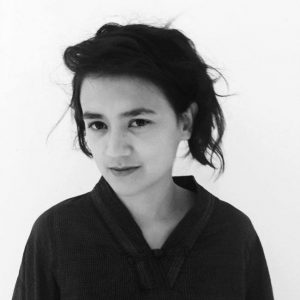 Dr. Lia WEI is currently based at the Department of Archaeology and Museum Studies in Renmin University of China, conducting research and teaching on the archaeology of culture contact and the intersection between intangible and material cultural heritage, as well as contributing to several research-oriented, educational or curatorial collaborations between Renmin University and European partners (Université de Genève, Ghent University).
Dr. Lia WEI is currently based at the Department of Archaeology and Museum Studies in Renmin University of China, conducting research and teaching on the archaeology of culture contact and the intersection between intangible and material cultural heritage, as well as contributing to several research-oriented, educational or curatorial collaborations between Renmin University and European partners (Université de Genève, Ghent University).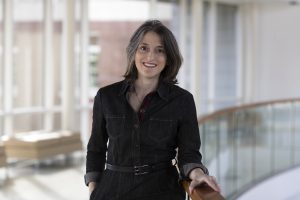
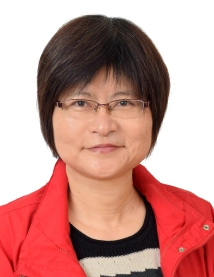 Dr. Yu-chen Li received her Ph.D. degree in 2000 from Cornell University. She is currently the chair of the Graduate Institute of Religious Studies at National Cheng Chi University. Yu-chen Li focuses on gender issues in Buddhism, such as the development of Bhiksuni sangha and Buddhist interaction with local culture through women. Her recent research deals with the conversion process of vegetarian women to Buddhism in 20th century Taiwan and Southeast Asia. Yu-chen Li published numerous works such as The Buddhist Nuns in Tang Dynasty, The Narrative of Sexuality and Desire among Sacred/Ordinary Men and Women, and Buddhism and Women in Postwar Taiwan, as well as more than 40 papers. Professor Li will contribute to the Doctoral School Specialist Course “Women and Nuns in Chinese Buddhism” (3-6 June 2019) as guest lecturer.
Dr. Yu-chen Li received her Ph.D. degree in 2000 from Cornell University. She is currently the chair of the Graduate Institute of Religious Studies at National Cheng Chi University. Yu-chen Li focuses on gender issues in Buddhism, such as the development of Bhiksuni sangha and Buddhist interaction with local culture through women. Her recent research deals with the conversion process of vegetarian women to Buddhism in 20th century Taiwan and Southeast Asia. Yu-chen Li published numerous works such as The Buddhist Nuns in Tang Dynasty, The Narrative of Sexuality and Desire among Sacred/Ordinary Men and Women, and Buddhism and Women in Postwar Taiwan, as well as more than 40 papers. Professor Li will contribute to the Doctoral School Specialist Course “Women and Nuns in Chinese Buddhism” (3-6 June 2019) as guest lecturer. Lectures
Lectures Lin Ching-hui received her PhD from the Chinese Culture University (Taipei). Her dissertation is titled A study of political views in Laozi, Zhuangzi and The Yellow Emperor’s Four Classics. She is project assistant at the Dharma Drum Institute of Liberal Arts. Currently she works as an editor for the Database of Medieval Chinese Texts Project. Lin Ching-hui is also Assistant Professor at the Department of Chinese Literature of the Chinese Culture University.
Lin Ching-hui received her PhD from the Chinese Culture University (Taipei). Her dissertation is titled A study of political views in Laozi, Zhuangzi and The Yellow Emperor’s Four Classics. She is project assistant at the Dharma Drum Institute of Liberal Arts. Currently she works as an editor for the Database of Medieval Chinese Texts Project. Lin Ching-hui is also Assistant Professor at the Department of Chinese Literature of the Chinese Culture University.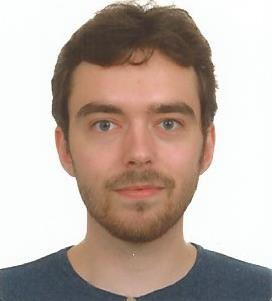
 Hanqing, Lei graduated from Fudan University at the School of Chinese Language and Literature. He was a visiting scholar at UC Irvine in 2011, and at the Research Institute of Zen at Hanazono University in Japan. Currently, he is a professor at the School of Literature and Journalism at Sichuan University, a researcher in the Institute of Chinese Folk Culture, and a PHD student supervisor in Chinese philology, linguistics and applied linguistics.
Hanqing, Lei graduated from Fudan University at the School of Chinese Language and Literature. He was a visiting scholar at UC Irvine in 2011, and at the Research Institute of Zen at Hanazono University in Japan. Currently, he is a professor at the School of Literature and Journalism at Sichuan University, a researcher in the Institute of Chinese Folk Culture, and a PHD student supervisor in Chinese philology, linguistics and applied linguistics.